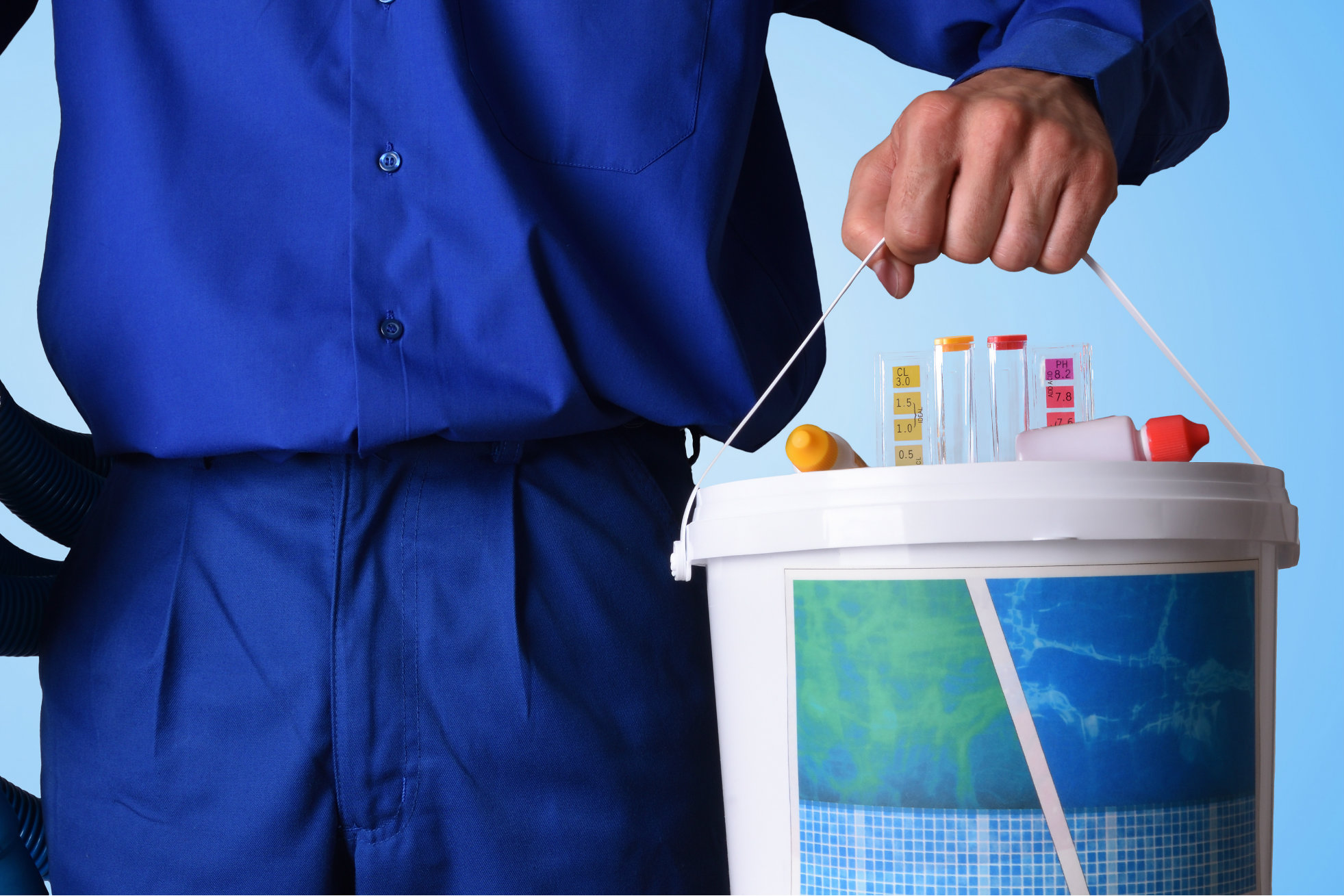At a time when it’s challenging to find trained service technicians — and when some companies prefer to hire those with no previous experience — training has become more important than ever.
But once a new hire has passed the initial training and become a full-fledged service technician, the learning shouldn’t stop. It should continue, no matter the level of expertise. That becomes easier and more routine if they’re surrounded by a culture that continues the momentum of education and training.
In the second part of our series on training service technicians, industry veterans share ways to create a culture of learning.
Start with the Law of Reciprocity
When Rich Gallo trains new staff, he works to set their minds at ease, but he also wants them to understand that they need to contribute to the team. So he begins by explaining the Law of Reciprocity.
“When you do good, it’s going to come back in its simplest form,” says Gallo, CEO of Los Angeles-based Pure Swim.
He explains that everybody is there to help them, but they also are expected to provide assistance when needed.
“I explain, ‘Imagine the guy to the left and your right has your back, because you have their backs,’” he says. “The biggest thing about any new job is going to be the fear factor of ‘I’m going to let someone down,’ ‘I’m going to get hurt,’ or ‘I’m not going to be able to do it.’ But if you know the guy to your left and right have your back and you know you’ll get through this, then your sense of empowerment is as high as it can possibly be.”
Use technology to create an environment of constant training.
Thanks to cell phones, texting and video chat, your technicians can easily contact each other and management with problems that come up. And everyone connected to the conversation can learn in the process.
“We have the entire company on Microsoft Teams, so they can contact each other or do a video call very easily,” says Nick Day, general manager of Denton, Texas-based Gohlke Pools. “They can easily take a picture and send it to the group, and they’ll have multiple responses in seconds. So they can get lots of help.”
Provide the incentive to learn.
Learning is a reward in itself, but if it comes with more commission earnings or even a trip out of town, it could provide even more incentive for techs to succeed.
Gohlke Pools makes clear to its pool pros that increased knowledge generally results in added commissions, by them completing calls more quickly and recommending appropriate products for their customers to purchase.
The company also financially rewards route supervisors when their direct reports do a good job and the owners of the pools they supervise are happy. “Our route supervisor is responsible for keeping those pools perfect,” Day explains. “So part of their job is making sure the techs are up to speed. They’re going behind those maintenance techs, making sure they’re doing a good job. And they’re heavily involved in training.”
All Seasons Pools, Spas & Outdoor Living even uses the education itself as an incentive. About five years ago, the company launched a program where employees earn trips to national trade shows and educational events. They can earn points by selling product, receiving five-star reviews on the various platforms, and by attending training events.
“In January 2023, we had 15 employees make the trip from Chicago to Atlantic City to attend the Northeast Spa and Pool Association’s Pool and Spa Show, continuing their education on a national stage through seminars and floor sessions, as well as networking,” reports Dan Lenz, vice president of the Orland Park, Ill.-based company.
Schedule training at regular intervals, even in the busy season.
Make training an integral part of your company’s operations by conducting it regularly.
If you have an off-season, certainly ramp up training to take advantage of the slower work pace.
Even those off-season trainings should be treated like a routine occurrence during the slower months. For instance, Lenz’ company holds day-long sessions every Thursday in winter. Each day includes six hour-long sessions on varying topics. It becomes embedded in the routine, and managers are accountable for using that time to its maximum.
But even during the busy season, try to routinize education by at least scheduling regular meetings or one-on-one sessions with managers. This way, techs not only learn but they make it a regular part of their jobs and lives.
Many PSN Top 50 pool/spa service companies hold weekly department meetings where techs can bring up challenges and brainstorm for solutions, or where managers and supervisors update them on a new procedure, code or product.
Gohlke Pools also holds weekly meetings. While the maintenance department and the repair departments usually meet separately, they’ll come together every few weeks.
“It’s important, first, for company culture, so they can know each other and know who’s available out there for help,” Day explains. “But it allows them to, if the repair techs are seeing specific issues or maybe nuisance calls coming from the maintenance technicians, then they can discuss those and try to make everybody’s time more efficient.”
Whenever the training occurs, treat it as sacred, Lenz advises. Before, his employees could step out of a training if they had a pressing matter to address, such as receiving a delivery. “Now, we literally don’t accept deliveries on Thursday during winter, because we don’t allow anything to take people away from training.”
Develop a system for combating misinformation.
Hopefully your technicians will seek out education on their own. This often will take the form of scouring social media such as Facebook groups, along with online video channels.
While the hunt for knowledge should be applauded, this sometimes can yield poor information. Then the technician may pass that on to his or her coworkers.
All Seasons has seen this problem on the rise over the past five or six years. “One of the hurdles or obstacles that we’ve had to overcome is … identifying when employees see, read or hear something that they believe is proper but is counter to what we’ve been teaching,” Lenz says. “[We need] to have a platform for them to expose that so we can talk through and determine if it is good, valuable information or more internet nonsense,” Lenz says.
The company encourages its techs to share with them any new techniques they’ve picked up from the internet.
“We tell them we want to hear about it so we can evaluate if it is truly better,” Lenz says. “If it’s good, we’re all going to get better because of it. If not, we can explain why, so we don’t have things being done poorly and improperly.”
During trainings, after the leader has explained how the company performs a certain task, they’ll remind the team to share any new techniques they’ve come across.
“We’ll explain, ‘Please, if you think you’ve found a better way, share it, get someone else’s input. Then we’ll have a conversation about it,’” Lenz says. “You can’t see everything that’s going on, so having that very open-door kind of policy in our training is how that comes out.”
Build your culture into your training.
Just as surely as these company owners and managers incorporate training into the culture, they use training as an opportunity to reinforce their culture.
Lenz’ company does this in a couple ways. At the beginning of its winter training each year, staff reviews the company’s 15 core values, or the attributes that the company and, by extension, its employees should have. Then throughout the year, trainers often will briefly discuss how certain elements of their presentations or discussions reflect back on the core values.
Additionally, the company devotes time in many of its sessions to help build one voice among its staff.
“You can get individuals who have differing opinions or, if they don’t know, sometimes just throw something out there,” Lenz explains.
The company works to prevent this problem, especially during winter training, which often serves as an introduction for new and seasonal employees. “We try to identify at least three pieces of information that we feel are important for everyone from All Seasons to present the same if anybody asks,” he says. “For instance, if somebody asks what is the best free chlorine level in an inground swimming pool, everybody should respond 2-4 parts per million. ”
They want everybody to be on the same page — and this goes across departments: “We try to drill into people that it doesn’t matter whether it’s the warehouse person who has a customer stop them as they carry garbage out to the dumpster, or if it’s me, that we’re all speaking the same language and give the same answer.”




